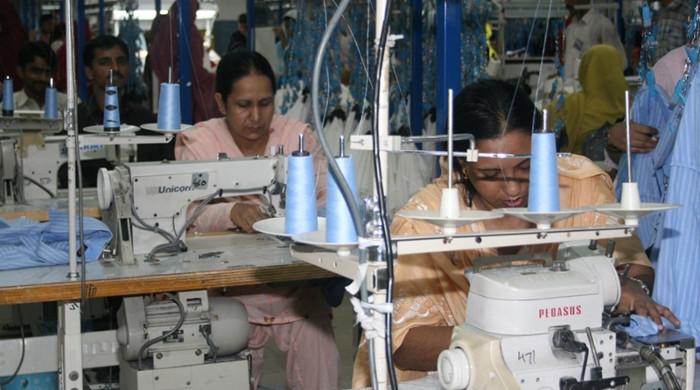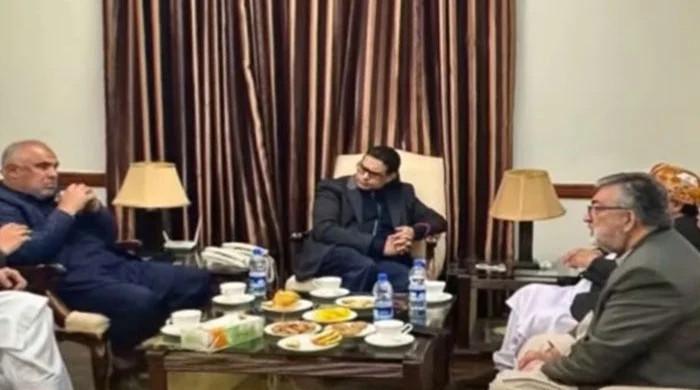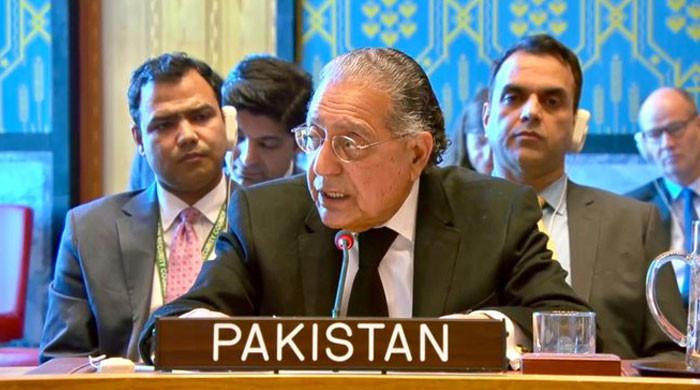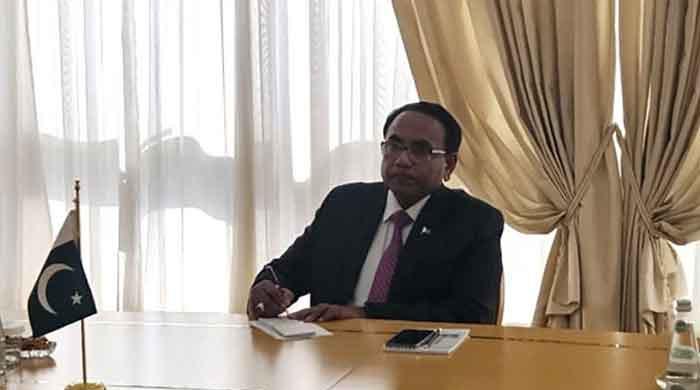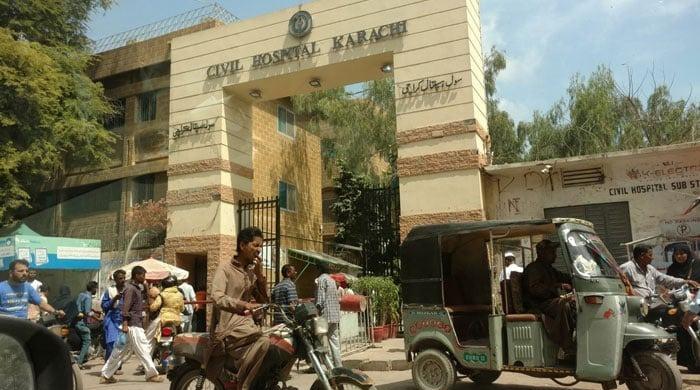Reserved seats verdict: SC slams ECP 'dilatory tactics', orders immediate implementation
Application submitted by electoral watchdog to seek clarification is misconceived, say eight judges
September 14, 2024
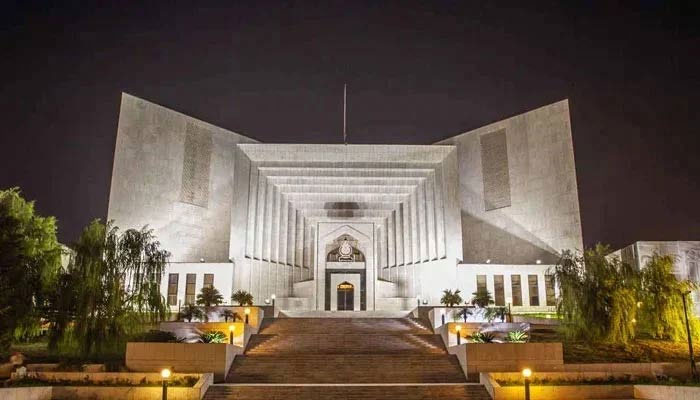
- “Electoral body’s clarification plea nothing more than contrived device.”
- PTI was, and is, an enlisted political party, says apex court.
- ECP warned of consequences over "continued failure" to implement verdict.
The Supreme Court on Saturday came down hard on the Election Commission of Pakistan for its “attempts to create confusion” on its July 12 reserved seats verdict, saying that the clarification sought by the commission was nothing but an attempt to “obstruct implementation” of the judgment declaring PTI eligible for reserved seats in parliament.
“Putting together the record placed before us [top court], and considering the same in light of the short order, leaves in little doubt that the clarification sought by the commission is nothing more than a contrived device and adoption of dilatory tactics,” the eight judges stated in a clarification.
After notifying 39 out of 80 Members of the National Assembly (MNAs) as PTI members, the electoral watchdog had sought legal and constitutional guidance from the apex court on the matter of the remaining lawmakers in the national and provincial assemblies.
The ECP submitted a plea to the top court's registrar via its secretary Omar Hamid Khan to seek an elaborated version of its July 12 order regarding the PTI-backed independent candidates in which the SC declared the former ruling party eligible for reserved seats.
Following the apex court's July 12 ruling, PTI lawmakers in the national and provincial assemblies had submitted their affidavits of allegiance to the Imran-founded party to the ECP.
The electoral body had pointed out its records which did not authorise Barrister Gohar Ali Khan as the party chairman, questioning the legal status of the PTI's confirmation of statements regarding the lawmakers in the assemblies by an "unauthorised person" on behalf of the party in absence of the "validly elected organisational bodies".
In its four-page clarification issued today, the SC said having itself issued notices to the PTI through Barrister Gohar Ali Khan as its Chairman, the Commission “gave recognition to both the party and the office holder”.
The court noted that the ECP, even if one were to consider the application in the most sympathetic light, has “apparently forgotten the well-known de facto doctrine or rule, in terms of which the acts of a person who holds an office are protected even if there may be any issue with the position de jure.
“It would be completely illogical to assume that a political party, a juristic person, is fully functional yet there are no natural persons who are either de facto or de jure performing its functions or running its affairs,” it added.
Furthermore, the top court said the Election Commission cannot now turn around and purport to seek guidance from the court with regard to how the certifications are to be dealt with. “It cannot approbate and reprobate, taking whatever (shifting) stance as it desires and as may seem to suit its immediate purposes for the moment,” it noted.
The ECP, in its clarification plea, had also stated that the PTI lacked an organisational structure as per the ECP’s record, which "is statutory obligation of every enlisted political party to conduct intra-party elections in terms of Section 208 of the Election Act 2017".
Responding to this query, the court said; “It sufficed and the Commission was duty bound in terms of the Constitution to keep in mind that the admitted position (as stated before the Court during the hearing of the appeals) is that the PTI was, and is, an enlisted political party.”
According to the clarification, this position was not only accepted and relied upon by the majority eight judges but also by three learned colleagues in minority — Chief Justice Qazi Faez Isa, Justice Yahya Afridi and Justice Jamal Khan Mandokhail.
“Their lordship appears to have also accepted the validity of the party certificates (party tickets) issued by Barrister Gohar Ali Khan and thus his capacity to act for PTI as its Chairman.
“There could have been no conceivable doubt that the certifications referred to above were correct,” the SC said, warning that the continued “denial and refusal of the Commission” to accept the same may expose it to action as may be warranted in terms of the Constitution and the law.
Alluding to another fundamental aspect, the court said it was categorically declared in paragraph 8 of the short order that the seat secured by such candidate shall be forthwith deemed to be a seat secured by that political party.
“As per the position so determined, the said returned candidates were and are the returned candidates of PTI and thus members of the parliamentary party of PTI in the National Assembly and Provincial Assemblies concerned, for all constitutional and legal purposes”.
It further stated that the “attempt by the ECP to confuse and cloud what is otherwise absolutely clear as a matter of the Constitution and the law must therefore be strongly deprecated”.
Moreover, the apex court said the list required to be issued by the electoral body was “nothing more than a ministerial act”, for the information and convenience of all concerned, and has no substantive effect.
“Nonetheless, the continued failure of, and refusal by, the Commission to perform this legally binding obligation may, as noted, have consequences. This obligation must be discharged forthwith”, it concluded.
The reserved seats case
On July 12 this year, a 13-member full bench of the apex court ruled that the Imran Khan-founded party was eligible for the allocation of reserved seats for women and non-Muslims in the national and provincial assemblies.
Justice Mansoor Ali Shah announced the 8-5 majority verdict, nullifying the Peshawar High Court's (PHC) order wherein it had upheld the ECP’s decision denying the reserved seats to the Sunni Ittehad Council (SIC)
The other seven judges who supported the verdict include Justice Munib Akhtar, Justice Muhammad Ali Mazhar, Justice Ayesha A Malik, Justice Athar Minallah, Justice Syed Hasan Azhar Rizvi, Justice Shahid Waheed and Justice Irfan Saadat Khan.
The PTI candidates contested the Feb 8 elections as independents after the top court upheld the ECP decision to deprive the opposition party of its iconic bat electoral symbol over “unlawful” intra-party polls.
The decision forced the PTI-backed winning candidates to join the SIC in a bid to claim reserved seats. However, the ECP denied the reserved to the SIC over its failure to submit list of candidates within the stipulated time.
The ECP subsequently decided to implement the July 12 verdict, with notifying 93 lawmakers in Punjab, Khyber Pakhtunkhwa and Sindh assemblies and 39 in National Assembly as "returned candidates" of former ruling party.
These members — 93 from the provincial assemblies and 39 from the National Assembly — had shown their affiliation with the party in their documents submitted to the election commission ahead of the general elections.
The majority judgement recognised 39 of the 80 SIC lawmakers as PTI members based on party affiliation certificates submitted prior to the general election, and allowed the remaining 41 to join PTI within 15 days.
Later, at least 37 MNAs out of 41 submitted their affidavit of allegiance to the ECP, according to The News.
However, the ECP — in its civil miscellaneous application — questioned the legal status of the PTI's confirmation of statements regarding the lawmakers by an "unauthorised person" on behalf of the party in absence of the "validly elected organisational bodies".
The fate of the remaining 41 candidates in the NA is yet to be decided by the ECP who had not mentioned PTI in their nomination papers as the Supreme Court has directed it to implement its judgement immediately.





